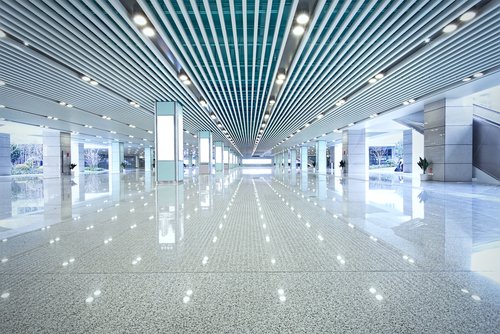
Table of Contents
Introduction
In today’s fast-paced business environment, efficient lighting isn’t just a luxury—it’s a necessity. Whether you’re a business owner, a facilities manager, or someone passionate about Actual energy efficiency, understanding the impact of your commercial lighting choices can make a significant difference. Imagine walking into a well-lit office where every corner radiates productivity. That’s the magic of efficient lighting. In this guide, we’ll explore why your commercial lighting upgrade is crucial and how it can benefit your business in multiple ways. From assessing your current system to planning and implementing an upgrade, we’ve got you covered.
Understanding Your Lighting Needs Assessing Current Systems
Before making any changes, it’s important to know where you stand. Conducting an assessment of your current lighting system can reveal inefficiencies and areas for improvement.
- Audit Your Existing System
Evaluate the types of fixtures, their locations, and their usage patterns. This will help you understand the strengths and weaknesses of your current setup.
- Identify Problem Areas
Look for spaces that are either over-lit or under-lit. Both can be problematic, affecting not only energy consumption but also employee productivity.
- Consult an Expert
Bringing in a lighting consultant can provide you with a professional assessment and recommendations tailored to your specific needs.
The Benefits of Upgrading to Energy-Efficient Lighting
Switching to Actual energy-efficient lighting offers numerous advantages that go beyond mere cost savings.
- Reduced Energy Bills
One of the most immediate benefits is the reduction in energy costs. Energy-efficient lighting consumes less power, which translates to lower electricity bills.
- Enhanced Employee Productivity
Proper lighting can have a profound impact on workplace productivity and employee well-being. Better lighting conditions lead to improved focus and reduced eye strain.
- Environmental Impact
By switching to energy-efficient options, your business can significantly reduce its carbon footprint, contributing to a more sustainable future.
Types of Commercial Lighting Upgrades LEDs, Sensors, and Controls
When it comes to upgrading your commercial lighting, you have several options to choose from.
- LED Lighting
LEDs are highly efficient and have a longer lifespan compared to traditional lighting options. They offer excellent light quality and are available in various colors and intensities.
- Lighting Sensors
Motion and occupancy sensors can further enhance Actual energy efficiency by ensuring that lights are only on when needed. These sensors can be particularly useful in low-traffic areas like storage rooms or restrooms.
- Smart Controls
Advanced lighting control systems allow for greater flexibility and customization. With smart controls, you can adjust lighting levels, set schedules, and even control lighting remotely through a smartphone app.
Planning Your Commercial Lighting Upgrade Budgeting and Project Management
A successful lighting upgrade requires careful planning and execution.
- Set a Budget
Determine how much you’re willing to invest in the upgrade. Consider long-term savings and potential incentives or rebates available for energy-efficient projects.
- Create a Timeline
Establish a realistic timeline for the project, from initial assessment to final implementation. Ensure minimal disruption to your daily operations.
- Choose the Right Vendor
Partnering with a reliable vendor is crucial. Look for vendors with experience in commercial lighting projects and positive customer reviews.
The Environmental and Financial Impact of Energy-Efficient Lighting
Upgrading to energy-efficient lighting can have a substantial impact on both the environment and your bottom line.
- Energy Savings
Energy-efficient lighting uses significantly less electricity, which leads to lower energy bills and reduced operational costs.
- Reduced Carbon Footprint
By consuming less energy, energy-efficient lighting helps reduce greenhouse gas emissions, making your business more environmentally friendly.
- Financial Incentives
Many governments and utility companies offer incentives, rebates, and tax credits for businesses that switch to energy-efficient lighting. These can help offset the upfront costs of the upgrade.
How to Measure the Success of Your Lighting Upgrade
Once your upgrade is complete, it’s important to evaluate its effectiveness.
- Monitor Energy Consumption
Compare your energy bills before and after the upgrade to see the savings. Use energy monitoring systems to track ongoing consumption.
- Employee Feedback
Gather feedback from employees about the new lighting conditions. Their input can provide valuable insights into the upgrade’s impact on productivity and comfort.
- Regular Maintenance
Schedule regular maintenance checks to ensure that your new lighting system continues to operate efficiently and effectively.
Conclusion
The future of commercial lighting is bright, and the benefits of upgrading are clear. By investing in energy-efficient lighting solutions, you’re not only improving your business’s bottom line but also contributing to a more sustainable future. Ready to take the next step? Explore your options and start planning your commercial lighting upgrade today. For personalized assistance, contact our team of experts who can guide you through the process and help you achieve your lighting goals. Together, we can illuminate the path to a brighter, more efficient future.